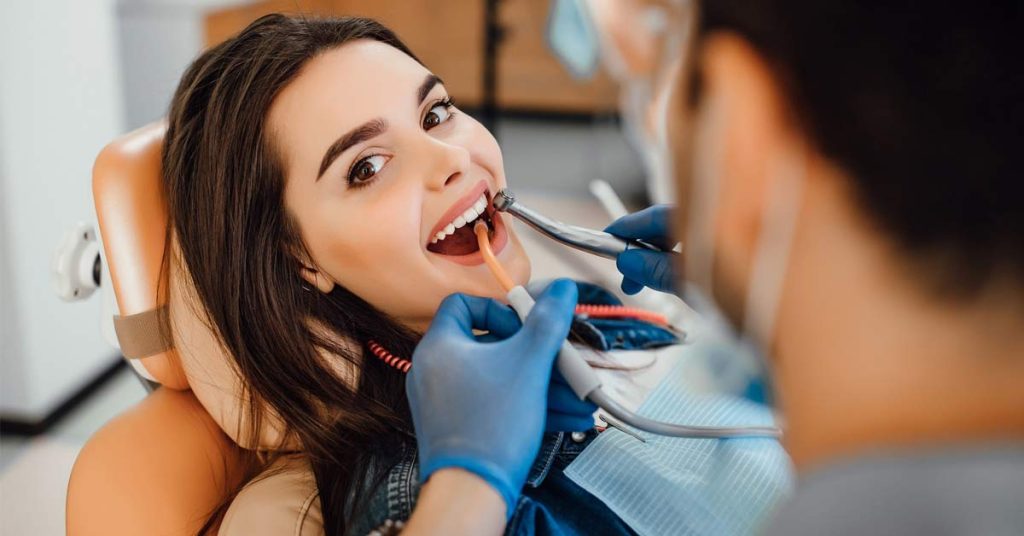In recent years, the beauty salon industry in the United Kingdom has undergone significant transformation, evolving into a thriving sector that caters to the diverse grooming and wellness needs of its population. We will delve into the various aspects of the beauty salon business in the UK, shedding light on its massive size, the regulatory landscape, profitability, startup costs, earnings potential, and licensing requirements.
A. The Enormous Scope of the Beauty Salon Industry in the UK
The beauty salon industry in the UK is colossal, contributing significantly to the nation’s economy. According to Statista, the revenue in the Beauty & Personal Care market amounts to £13.95 bn in 2023 – beauty salons have become essential hubs for individuals seeking a wide array of services, ranging from hair care and skincare treatments to massages, nail care, and specialized aesthetic procedures. This industry’s vastness is indicative of the growing emphasis on self-care and personal grooming among the UK populace.
B. Regulatory Framework: Ensuring Standards and Safety
Beauty salons in the UK operate within a robust regulatory framework designed to maintain high standards of hygiene, safety, and professionalism. The Health and Safety Executive (HSE) provides essential guidelines, ensuring that salons adhere to stringent health and safety protocols. Moreover, local councils oversee specific operational aspects, such as waste management and environmental health standards. Compliance with these regulations is not only mandatory but also fundamental to building a salon’s reputation and ensuring customer trust.
C. The Profitability Quotient: A Lucrative Venture
The profitability of beauty salons in the UK hinges on a multitude of factors, including location, services offered, pricing strategies, and customer satisfaction levels. Successful salon owners who invest in quality services, stay abreast of industry trends, and prioritize customer experience often reap substantial profits. As the demand for beauty treatments continues to rise, well-managed salons can enjoy healthy profit margins, making the beauty salon business an attractive and lucrative venture for entrepreneurs.
D. Counting the Cost: Startup Investment for Beauty Salons
Launching a beauty salon in the UK entails careful financial planning and investment. Startup costs vary widely based on factors such as salon size, location, interior decor, equipment quality, and staff salaries. A comprehensive business plan should account for expenses like property leasing or purchase, salon furnishings, state-of-the-art equipment, employee wages, marketing initiatives, and administrative overheads. Entrepreneurs must conduct thorough market research and budgeting to estimate the initial investment accurately, which can range from a few thousand pounds to several hundred thousand pounds.
E. Salon Owners’ Earnings: A Rewarding Endeavor
The earnings of salon owners in the UK are directly influenced by the salon’s profitability, customer base, and operational efficiency. Experienced and well-managed salons can generate substantial revenue, providing owners with a comfortable income. Additionally, innovative marketing strategies, exceptional customer service, and the ability to adapt to evolving beauty trends can further boost earnings. Successful salon owners often reinvest in their businesses, ensuring continuous growth and sustainability.
F. Licensing Requirements: Navigating the Legal Landscape
Operating a beauty salon in the UK necessitates adherence to licensing and certification requirements. Salon owners, as well as their staff members, must obtain relevant licenses covering services such as hairdressing, beauty treatments, and massage therapy. Acquiring these licenses showcases professionalism, instills customer confidence, and safeguards the salon from legal complications. It is essential for entrepreneurs to understand the specific licensing regulations applicable in their region and ensure full compliance to operate their salons legally and ethically.
G. How much do beauticians get paid in the UK?
The salary of beauticians in the UK can vary based on factors such as experience, skills, location, and the salon’s reputation. On average, entry-level beauticians can expect to earn around £16,000 to £20,000 per year. With several years of experience, skilled beauticians can earn between £25,000 to £35,000 annually. Senior beauticians and salon managers with significant experience and expertise can earn higher, sometimes exceeding £40,000 per year. Salaries can also be influenced by additional factors such as commission-based earnings, tips, and bonuses.
H. How do I hire beauticians to run a profitable beauty salon?
Hiring skilled and passionate beauticians is crucial to running a profitable beauty salon. Here are some tips for hiring the right talent:
- Define Job Roles Clearly: Clearly outline the job roles and responsibilities for each position within your salon. This helps potential candidates understand what is expected of them.
- Look for Qualifications and Experience: Seek beauticians with relevant qualifications and experience in the services your salon offers. Experienced beauticians bring expertise and can enhance the overall quality of your salon’s services.
- Conduct Thorough Interviews: Conduct in-depth interviews to assess candidates’ skills, professionalism, and customer service orientation. Ask for portfolios or work samples to evaluate their work quality.
- Check References: Always check references provided by candidates to ensure they have a good track record in their previous roles.
- Provide Training and Growth Opportunities: Invest in continuous training and development programs to help your beauticians stay updated with the latest trends and techniques. This not only enhances their skills but also contributes to the salon’s overall reputation.
I. How to start a successful beauty salon in the UK?
Starting a successful beauty salon in the UK requires careful planning and strategic execution. Here’s a step-by-step guide:
- Market Research: Conduct thorough market research to understand your target audience, competitors, and market demand for specific services.
- Create a Business Plan: Develop a detailed business plan outlining your salon’s concept, target market, services, pricing, budget, and marketing strategies.
- Legal and Financial Considerations: Register your business, obtain the necessary licenses, and set up a solid accounting and financial system. Consult with legal and financial professionals if needed.
- Location and Interior: Choose a prime location for your salon that is easily accessible to your target customers. Invest in an inviting and aesthetically pleasing interior to create a comfortable ambiance.
- Equip Your Salon: Purchase high-quality salon equipment, furniture, and beauty products. Ensure that your salon is well-equipped to offer a wide range of services.
- Staffing: Hire skilled and professional staff, including beauticians, receptionists, and cleaners. Provide training and ensure excellent customer service.
- Marketing and Promotion: Develop a strong online presence through a professional website and social media platforms. Implement effective marketing strategies, such as promotions, discounts, loyalty programs, and partnerships with local businesses.
- Focus on Customer Experience: Prioritize exceptional customer service to build customer loyalty and positive word-of-mouth referrals.
J. How to market my beauty salon business?
Marketing your beauty salon effectively is essential for attracting and retaining customers. Here are some marketing strategies:
- Online Presence: Create a professional website showcasing your services, pricing, and contact information. Optimize your website for search engines (SEO) to improve online visibility.
- Social Media Marketing: Utilize popular social media platforms like Instagram, Facebook, and Pinterest to showcase your salon’s work. Post regularly, engage with followers, and run targeted advertisements.
- Google My Business: Claim and optimize your Google My Business listing to enhance local search visibility. Encourage satisfied customers to leave positive reviews.
- Email Marketing: Build an email list of customers and send regular newsletters with promotions, beauty tips, and updates about your salon.
- Partnerships and Collaborations: Partner with local businesses and influencers for cross-promotions. Collaborate with wedding planners, photographers, or event organizers for special packages and promotions.
- Special Offers and Loyalty Programs: Attract new customers and retain existing ones by offering special discounts, referral bonuses, and loyalty programs.
- Quality Photography: Invest in professional photography to showcase your salon’s ambiance, staff, and services. High-quality visuals create a positive impression.
K. Role of a Website for Promoting Salon Business
In the digital age, a well-designed and user-friendly website plays a pivotal role in promoting a salon business. It serves as the online storefront, offering potential clients a glimpse into the services, ambiance, and expertise your salon provides. A website acts as a virtual brochure, showcasing your salon’s portfolio, staff expertise, and customer testimonials. It allows prospective clients to explore your services, pricing, and special offers from the comfort of their homes.
Moreover, a website enhances your salon’s credibility and professionalism. A professionally designed website with high-quality visuals and engaging content establishes trust among visitors. It provides essential information such as salon location, contact details, operating hours, and a booking platform, making it convenient for clients to schedule appointments. A responsive website that adapts to various devices, including smartphones and tablets, ensures a seamless user experience, leading to increased customer satisfaction and retention.
Additionally, a blog section on your website can be utilized to share beauty tips, industry trends, and client success stories. Regularly updating your blog not only provides valuable information to visitors but also improves your website’s search engine optimization (SEO) ranking, making it more discoverable to potential clients online.
L. Role of Digital Marketing in Promoting Salon Business
Digital marketing has revolutionized the way businesses, including salons, reach and engage with their target audience. In the context of a salon business, digital marketing encompasses various strategies, including social media marketing, search engine optimization (SEO), email marketing, pay-per-click (PPC) advertising, and content marketing.
Social media platforms such as Instagram, Facebook, and Pinterest are powerful tools for showcasing your salon’s work. High-quality images and videos of your services, satisfied clients, and behind-the-scenes glimpses create visually appealing content that attracts potential customers. Engaging with followers through interactive posts, contests, and promotions fosters a sense of community and loyalty.
SEO ensures that your salon’s website ranks higher in search engine results when potential clients search for relevant keywords, such as “best hair salon in [location].” By optimizing your website’s content, meta tags, and backlinks, you increase its visibility, driving organic traffic and potential leads.
Email marketing allows you to stay connected with your clients by sending newsletters, promotions, and personalized offers. Building an email list and sending targeted campaigns can encourage repeat business and generate referrals, enhancing your salon’s customer base.
PPC advertising, on platforms like Google Ads, enables you to create targeted ads that appear when users search for specific keywords related to salon services. This targeted approach ensures that your ads reach individuals actively seeking beauty treatments, maximizing the chances of conversions.
Content marketing involves creating valuable and informative content, such as blogs, videos, and infographics, to engage and educate your audience. By sharing expertise and addressing common beauty-related concerns, you position your salon as an authority in the industry, building trust and credibility among potential clients.
M. Role of Staffing Agencies for Hiring the Best Resources for Salon Business
Staffing agencies play a vital role in helping salon businesses find the right talent to deliver exceptional services. These agencies specialize in recruiting professionals with expertise in various salon services, including hairstyling, skincare, nail art, and massage therapy. Their extensive networks and industry knowledge enable them to identify candidates with the necessary qualifications, skills, and experience.
Staffing agencies streamline the hiring process by conducting initial screenings, verifying credentials, and assessing candidates’ suitability for specific roles within your salon. They save salon owners valuable time and effort by presenting pre-screened candidates, allowing businesses to focus on day-to-day operations and client satisfaction.
Moreover, staffing agencies often have access to a pool of experienced and skilled professionals, including beauticians, stylists, therapists, and receptionists. By partnering with a reputable staffing agency, salon businesses can access a broader talent pool, increasing the likelihood of finding the best resources to enhance their services and customer experience.
Summing Up
The beauty salon business in the UK stands as a testament to the nation’s evolving beauty and wellness landscape. With its significant market size, stringent regulations, promising profitability, substantial startup costs, rewarding earnings potential, and licensing requirements, the industry offers a multitude of opportunities for aspiring entrepreneurs.
As the demand for beauty services continues to surge, individuals entering the beauty salon business can find success by embracing innovation, maintaining high standards, and delivering exceptional customer experiences. In this ever-expanding industry, the possibilities are vast, making the beauty salon business in the UK a dynamic and thriving venture for those willing to invest dedication, creativity, and hard work.
Here’s a video guide on how to open a salon for further help. Hope you will find it helpful.
ⓘ LAFFAZ is not responsible for the content of external sites. Users are required to read and abide by our Terms & Conditions.









